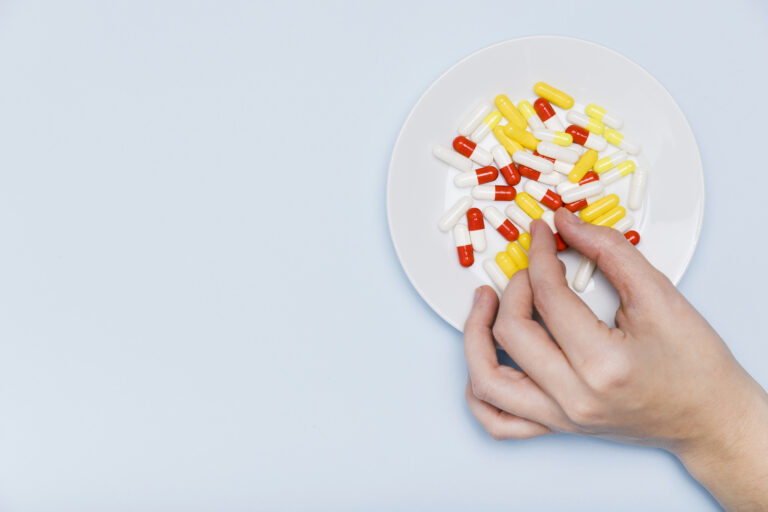What Is Blexten?
Blexten (generic name: bilastine) is a second-generation H1-antihistamine primarily used to treat allergies and urticaria. It is approved for individuals aged four and older who weigh at least 16 kg. Blexten works by selectively inhibiting your histamine H1 receptor, preventing the signs and symptoms of an allergic reaction. It operates similarly to other antihistamines like:
- Cetirizine
- Fexofenadine
- Desloratadine
What Is Blexten Used For?
Blexten is approved for alleviating the signs and symptoms of allergies. It is also sometimes used to help manage symptoms of Urticaria.
Seasonal allergies, also known as allergic rhinitis, affect around twenty to twenty-five percent of Canadians, or roughly one in every five people. This number appears to be on the rise, potentially due to climate change and other environmental factors like wildfire smoke exposure, which is a common irritant for many. Various allergens can trigger seasonal allergies, including:
- Tree pollen
- Mold spores
- Ragweed
- Grass pollen
- Pet dander
- Mites
- Smog
These allergies can disrupt both work and personal life, leading to common symptoms such as:
- Sneezing
- Itchy or runny nose
- Itchy or watery eyes
- Itchy throat and ears
- Postnasal drip
- Fatigue
- Coughing
- Headache
- Congestion
- A worsening of asthma symptoms (for asthma sufferers)
These symptoms result from your immune system’s exposure to and reaction to specific allergy triggers, setting off a chain reaction in the body, including the release of histamine, which causes these allergy symptoms.
How Do Antihistamines Work?
Histamine, a naturally occurring compound in the human body, plays a crucial role in various physiological processes. It acts as a neurotransmitter and is involved in regulating stomach acid secretion, muscle contraction, and the immune response. Histamine is best known for its role in the body’s response to allergens, especially in the context of seasonal allergies.
When the body encounters allergens like pollen, pet dander, or dust mites, it mistakenly identifies them as threats. In response, immune cells release histamine as part of the inflammatory reaction. Histamine binds to specific receptors on cells, primarily in the nose and eyes, causing blood vessels to dilate and become more permeable. This results in common allergy symptoms such as sneezing and watery eyes.
Antihistamine medications work by blocking histamine receptors, reducing or preventing these allergic reactions. Seasonal allergy sufferers often rely on antihistamines to alleviate symptoms. Increased research into histamine’s role in allergies has led to the development of effective treatments aimed at providing relief from the discomfort associated with seasonal allergies, known as antihistamines.
Is Blexten an Antihistamine?
Blexten is an antihistamine that suppresses the activity of histamine receptors in your body. Antihistamines comprise an entire class of drugs organized by the histamine receptor they bind to, with Blexten classified as an H1-antihistamine.
H1-antihistamines, sometimes referred to as H1 blockers, block histamine action at H1 receptor sites, preventing allergic reactions. These antihistamines can be first-generation or second-generation. First-generation H1-antihistamines can cross the blood-brain barrier, potentially causing sedation and cognitive impairment. In contrast, second-generation antihistamines are generally preferred due to their reduced impact on the blood-brain barrier.
In October 2019, the Canadian Society of Allergy and Clinical Immunology (CSACI) recommended the use of second- and third-generation H1 antihistamines over first-generation H1-antihistamines to treat non-life-threatening allergic reactions.
How Were Antihistamines Developed?
The development of antihistamine medications dates back to the early 20th century when histamine itself was discovered. In 1910, Sir Henry Dale and his colleague, P.P. Laidlaw identified histamine as a compound responsible for various physiological responses, laying the foundation for understanding its role in allergic reactions.
The real breakthrough, however, came in the 1930s when antihistamine development began. Antihistamines were available in pharmacies in the 1940s, with over fifty of them on the market by 1950. Since then, research and development have continued to create improved drugs with reduced side effects and increased efficiency. Pharmaceutical companies have refined antihistamines, aiming to minimize sedation while maximizing their allergy-fighting effectiveness.
Is Blexten Over-the-Counter (OTC)?
In Canada, Blexten is not available over-the-counter. In order to obtain Blexten, you require a prescription from a medical professional.
What Is a Typical Blexten Dosage for Adults?
For adults and those aged twelve and older, the standard Blexten dosage is typically 20mg. However, the exact dosage may vary by the manufacturer. Always follow your individual dosage instructions and consider:
- Ensuring the dose is intended for the correct person.
- Confirming the right drug and dose.
- Taking the medication at the proper time and in the correct amount and manner.
Can Children Take Blexten?
Blexten is also approved for children aged four to eleven. However, the usual dosage for this age group is 10mg, administered via an oro-dispersible tablet or oral solution. Always consult your individual dosage instructions and speak with a healthcare provider if you have any questions or concerns.
How Long Does Blexten Take to Work?
Blexten is available in various forms, with tablets or pills being the most common. It is generally taken orally. Like most oral medications, you should begin to feel relief from Blexten in around one hour. It’s usually best to take it on an empty stomach with water one to two hours before a meal to ensure the best possible effects from your Blexten dosage.
How Long Does Blexten Last?
Blexten provides approximately 24 hours, or a full day, of relief from your allergy symptoms. It is approved for daily use for extended periods, up to fifty-two weeks.
Can I Combine Blexten With Other Medications?
When considering combining medications, especially if you have questions about the interactions, it is crucial to consult with your doctor. Blexten is known to interact with several drugs and can pose potential cardiac risks for individuals taking diuretics or those with kidney disease.
In general, H1- and H2-antihistamines are approved for combination. There is evidence suggesting that combining both types can provide more effective allergy relief compared to taking a single medication alone, which may lead to improved patient outcomes. However, it’s essential to discuss the combination of any medications, including antihistamines, with a healthcare provider. Combining medications can have potential side effects and should only be done under professional guidance.
Can I Take Blexten and Reactine Together?
Cetirizine, commonly known as Reactine, should not be combined with bilastine (Blexten). Doing so can lead to cardiac arrhythmias such as prolonged QT waves, which can have severe side effects.
Can I Take Blexten and Rupall Together?
Rupall, also known as rupatadine, shares the same risk of cardiac issues as cetirizine and should not be combined with bilastine (Blexten).
Can I Take Blexten and Claritin Together?
Claritin, the brand name for loratadine, another H1-antihistamine, carries similar cardiac risks as cetirizine or rupatadine when combined with bilastine.
While allergy symptoms can be quite bothersome, it’s essential to avoid inappropriately combining medications. Instead, consult with a doctor to determine an allergy treatment plan that suits your specific needs.
What Meds Should I Not Take With Blexten Medication?
Grapefruit juice and other fruit juices can potentially reduce the effectiveness of Blexten. Grapefruit juice can also interact with various other medications besides Blexten. To ensure the best results with Blexten, take it on an empty stomach without food. Blexten is known to interact with several medications, so it’s important to discuss all the medications you’re currently taking with a doctor to ensure safety while using Blexten. Cannabis (marijuana) and alcohol can also intensify its effects, so it’s best to avoid them while taking Blexten.
Does Blexten Make You Drowsy?
While Blexten is considered a non-sedating drug, it can occasionally lead to drowsiness. Therefore, it’s crucial to refrain from driving or operating heavy machinery until you understand how it affects you.
It’s important to remember that individual sensitivity to medications can vary, and the effects of Blexten can differ between people. Moreover, the use of other medications, alcohol, and marijuana (cannabis) can further amplify Blexten’s effects. Always consult a physician about any concerns and use your best judgment when taking any medication.
What Are Blexten’s Potential Side Effects?
In addition to the possibility of drowsiness, Blexten may cause side effects such as:
- Fatigue
- Headaches
- Stomach pain
- Diarrhea
- Eye irritation
- Nasal irritation
- Nausea
- Changes in vision
- Constipation
- Increased sensitivity of your skin to sunlight
- Loss of appetite
- Joint pain
- Muscle aches
- Skin rash
- Vomiting
In rare cases, Blexten can trigger a specific heart arrhythmia known as QT prolongation, which may lead to serious side effects like:
- Tachycardia
- Arrhythmia
- Severe dizziness
- Fainting
- Other symptoms
Experiencing extreme side effects like these with Blexten is rare. Those taking Blexten should be aware of its common side effects and understand what might necessitate additional medical attention in rare cases.
Can You Take Blexten While Pregnant?
There isn’t sufficient evidence to conclusively establish the safety of using Blexten during pregnancy due to a lack of comprehensive studies. Therefore, taking Blexten during pregnancy should only occur under the direct guidance and prescription of your physician. It’s crucial to discuss the use of any medication while pregnant with your healthcare provider. If you’re already taking Blexten as per your doctor’s instructions and become pregnant, consult with your physician promptly.
Can You Take Blexten While Breastfeeding?
The safety of taking Blexten while breastfeeding is uncertain. Blexten can potentially lead to side effects, so it’s essential to discuss its use with a doctor before taking it while breastfeeding.
Who Shouldn’t Take Blexten?
Individuals who are pregnant, have a history of kidney disease, or are taking medications known to interact with Blexten should refrain from taking this medication and consult a physician regarding alternative allergy treatment options.
Is Blexten Approved in Other Countries Besides Canada?
Blexten is approved for the treatment of allergies in specific countries, including many European countries, Canada, India, and Japan. However, it is not currently approved for any use in the United States and has not received approval from the FDA (United States Federal Drug Administration).
Blexten: Everything You Need to Know
In summary, seasonal allergies can be challenging, but effective allergy treatments are available. If you’re experiencing troublesome symptoms like an itchy throat or sneezing, consult with a healthcare provider to find relief tailored to your needs.
Remember, when it comes to managing your seasonal allergies, it’s always best to seek professional guidance.
Speak to an Online Doctor about Blexten
Please note:
Walk In does not provide medical advice. The contents of this website, including text, graphics, images and any other material are intended for informational and educational purposes only and are not intended to substitute for professional medical advice, diagnosis or treatment. Although efforts are taken to keep any medical information on the website updated, we cannot guarantee that the information on our website is correct or reflects the most up-to-date medical information.
Please consult your physician for medical advice. Always seek the advice of a physician or other qualified healthcare provider with any questions regarding a medical condition. Never disregard or delay seeking professional medical advice or treatment because of something you have read on this website or on the internet.


